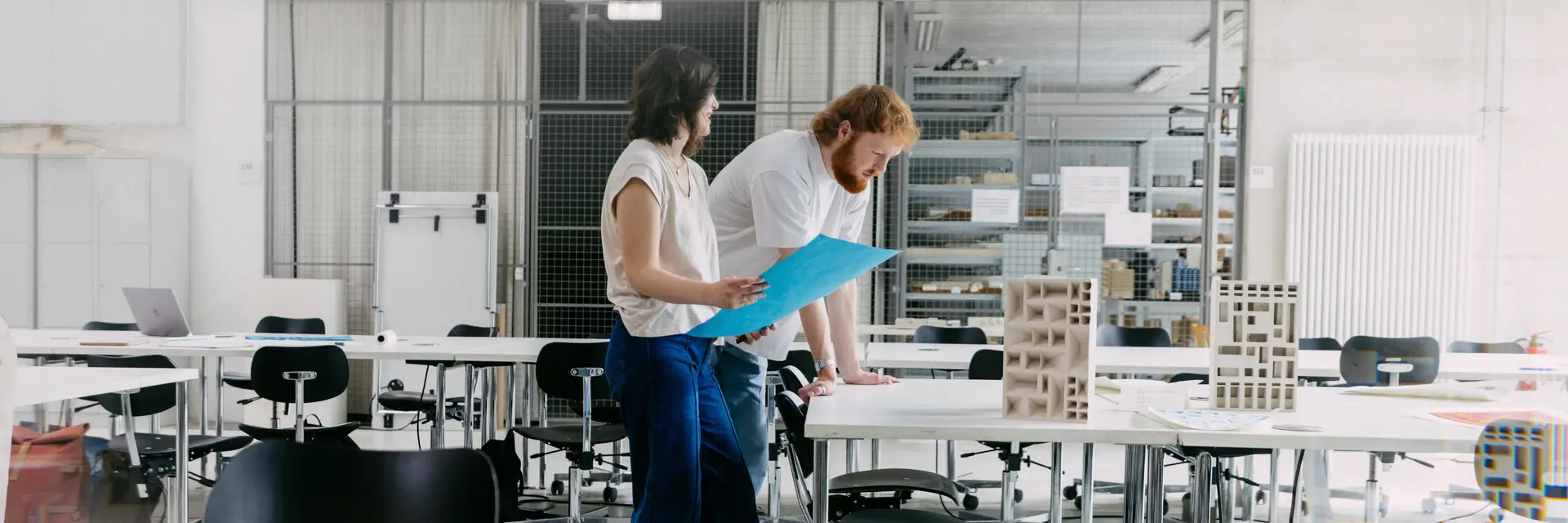
Faculty of
Architecture and Civil Engineering
in Wiesbaden
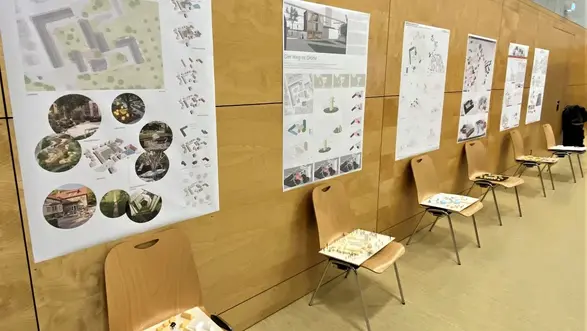
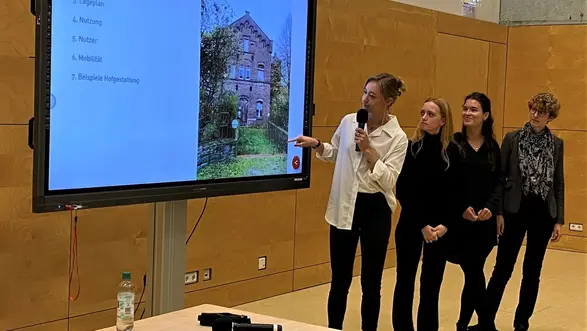
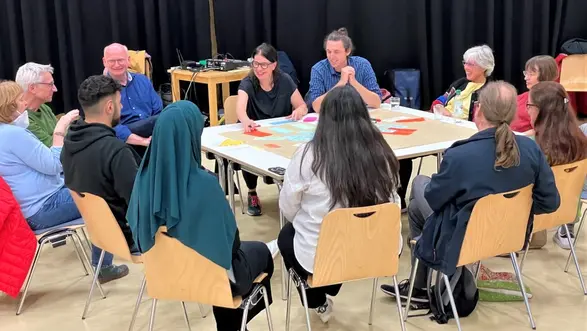
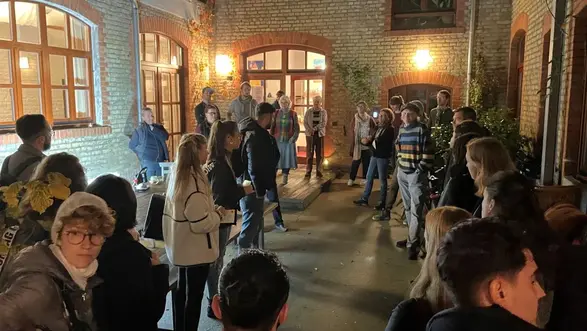
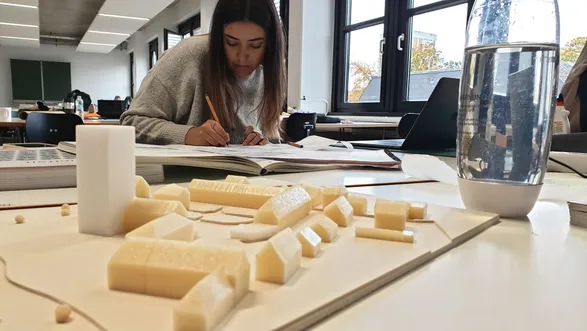
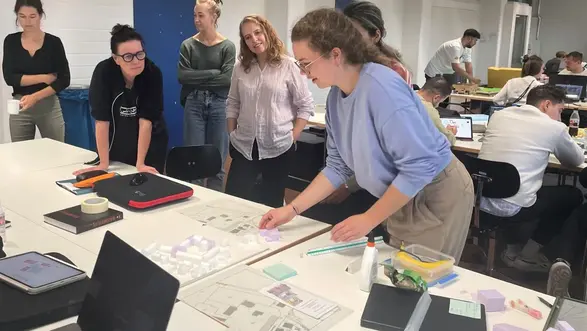
New living Wiesbaden
25.10.2022 - How can we live together in an ecologically and socially sustainable way in the future? Students from the Faculty of Architecture and Civil Engineering addressed this question last week as part of the New Living Wiesbaden ideas workshop, which took place in cooperation with "KlarA stadt.land.gut e. V. Verein zur Förderung des Erhalts und der gemeinwohlorientierten Nutzung des Hofguts Klarenthal" as well as various faculties of the City of Wiesbaden. Under the guidance of Prof. Sascha Luippold, the participants of the project week dealt with innovative strategies for the sustainable use of existing building resources, in this case the historic Klarenthal estate. The goal was to develop visionary transformation concepts for living and working in the future with a focus on the common good and climate awareness. "The social and ecological issues are more closely linked in housing construction than in few other areas of everyday life and the potential levers for truly sustainable future concepts are correspondingly large here," said Prof. Luippold, explaining the reason for the Wiesbaden New Housing Ideas Workshop.
Questions for the future of Wiesbaden's urban society
In order to gain an insight into this important aspect of urban development, Wiesbaden citizens were also invited to take part in the ideas workshop on two public event days. To kick off the project week, they were offered the opportunity to take part in an evening event entitled "Housing models of tomorrow". Prof. Dr. Eva Waller, President of Hochschule RheinMain, opened the evening and welcomed all the guests: "Together is the key word of these times. If local politicians, universities and citizens work together to promote affordable and intergenerational housing, the future can succeed. As a university of applied sciences, we want to involve our students in important issues of the future as actors and providers of ideas. We are all the more pleased when this commitment bears fruit and is recognized - in the case of this ideas workshop also through the GFB Future Prize, which is endowed with 10,000 euros and was awarded to "Neues Wohnen Wiesbaden" this summer by the Hessian Minister of Economics, Tarek Al-Wazir."
After Prof. Luippold had also welcomed the guests and given an overview of the ideas workshop, the participants addressed the following questions in the form of four specialist presentations: How can construction be climate-friendly and how can existing buildings be converted sustainably? What forms of housing are relevant and how do we combine living, working and living together in cohesive neighborhoods? How do we design the green and open spaces in the residential environment in a social and climate-friendly way? And what financing options are available for project development in existing buildings? Afterwards, a panel discussion with the participation of city councillor Andreas Kowol provided an opportunity to discuss the interplay of social and ecological challenges and future design options - especially for Wiesbaden.
Experiencing visions on site
The citizens of Wiesbaden were also welcome at the end of the ideas workshop. On Saturday, the students presented their impromptu designs from the project week on site at the Klarenthal campus of EVIM Jugendhilfe. From alternative housing models to neighbourhood-building concepts with communal and public uses, they impressed the audience with their creative development concepts for the Hofgut, which they have already fleshed out with initial structural visions. "I chose the project myself and it was a lot of fun. The project was set up like a studio where we could work, contribute ideas and change them again - everything that goes with the process. We also had a great opportunity to get to know students from other semesters," says Esma Simsek, who is studying Architecture in her third Master's semester. Following the presentation of the results, students and interested citizens then discussed various topics relating to the social and ecological development of the Klarenthal estate at a bar camp.
Open studios for citizens at the HSRM
In addition to the public barcamp and the lecture event, the compact and intensive workshop week was also characterized by a wide variety of meeting and exchange formats between the public, students and experts. In addition to an additional kick-off meeting with the Environmental Agency and the Lower Monument Authority, there was also an evening event with the Hessian State Advisory Center for Community Living on the premises of Wiesbaden's first housing project in Blücherstraße. On two other days, the studios of the architecture students on the Kurt-Schumacher-Ring Campus opened their doors to interested citizens, who thus became a direct and immediate part of the ideas workshop work process. "The format of the cooperative and locally oriented ideas workshop between citizens, city administration and the university was obviously so successful that following the public closing event on Saturday, the first requests for the next HSRM ideas workshop were already coming in from other parts of Wiesbaden," said Prof. Luippold, looking to the future.